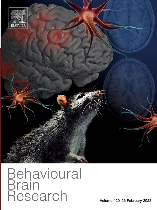Document type : Scientific article published in Behavioural Brain Research
Authors: Shachar Givonad, Matan Samina, Ohad Ben-Shahar, Ronen Segev
Preview: Navigation is a critical ability for animal survival and is important for food foraging, finding shelter, seeking mates and a variety of other behaviors. Given their fundamental role and universal function in the animal kingdom, it makes sense to explore whether space representation and navigation mechanisms are dependent on the species, ecological system, brain structures, or whether they share general and universal properties. One way to explore this issue behaviorally is by domain transfer methodology, where one species is embedded in another species' environment and must cope with an otherwise familiar (in our case, navigation) task. Here we push this idea to the limit by studying the navigation ability of a fish in a terrestrial environment. For this purpose, we trained goldfish to use a Fish Operated Vehicle (FOV), a wheeled terrestrial platform that reacts to the fish's movement characteristics, location and orientation in its water tank to change the vehicle's; ie., the water tank's, position in the arena. The fish were tasked to "drive" the FOV towards a visual target in the terrestrial environment, which was observable through the walls of the tank, and indeed were able to operate the vehicle, explore the new environment, and reach the target regardless of the starting point, all while avoiding dead-ends and correcting location iother small companion animalscuracies. These results demonstrate how a fish was able to transfer its space representation and navigation skills to a wholly different terrestrial environment, thus supporting the hypothesis that the former possess a universal quality that is species-independent.




